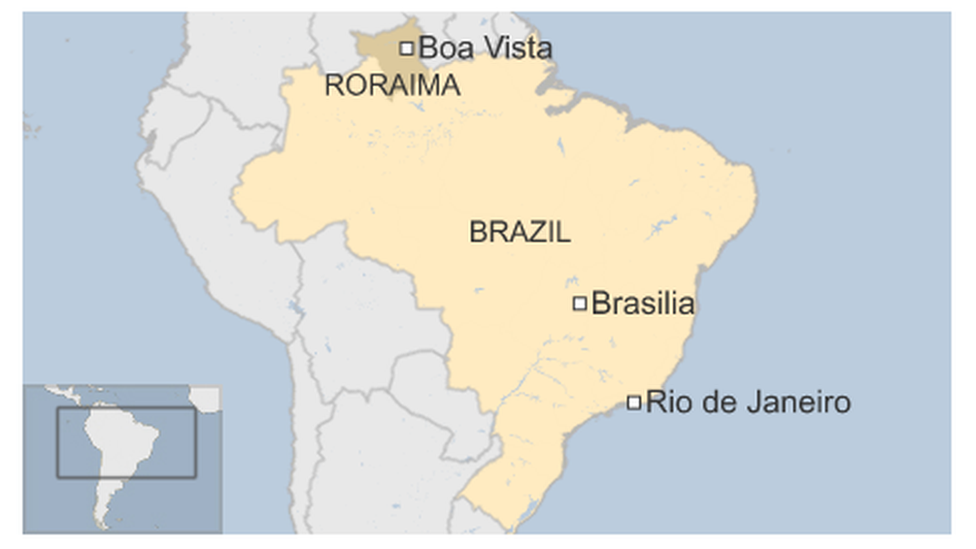Brazil prison riot kills at least 56 in Amazonas state
- Published
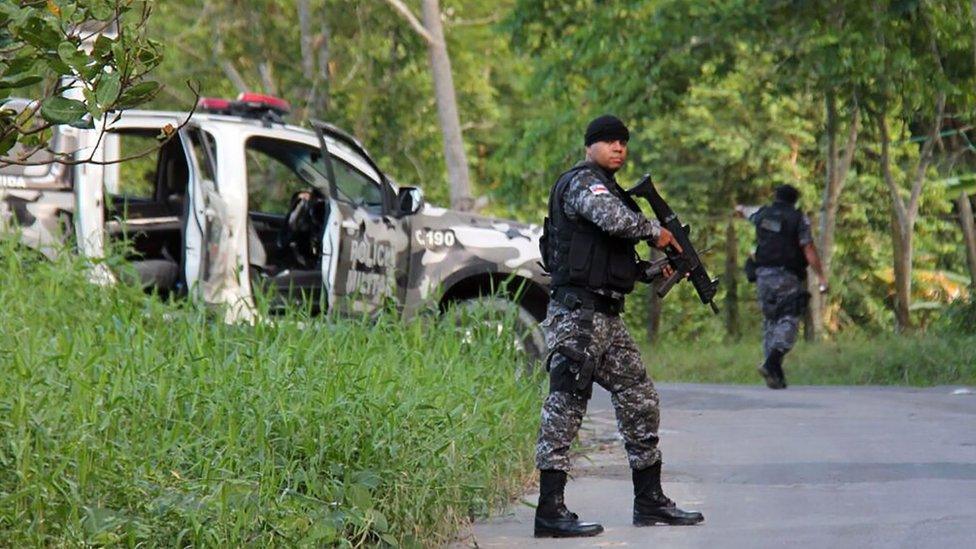
Police have been searching for possible escapees
A riot in an overcrowded prison in northern Brazil has left at least 56 inmates dead, many of them decapitated, officials say.
The unrest in Manaus, in Amazonas state, started on Sunday after a fight between rival gangs, police said.
The violence ended 17 hours later, when the inmates surrendered their weapons and freed unharmed the last of 12 guards they had taken hostage.
Brazil has the world's fourth-largest prison population.
There are some 600,000 inmates, and overcrowding is a serious problem. Reports said the capacity of the Anisio Jobim Penitentiary Centre, the biggest in Amazonas, was for 454 inmates, but it had 1,224 men.
When the riot began, six headless bodies were thrown over the perimeter fence. Pictures showed bloodied and burned bodies stacked in a concrete prison yard and piled in carts.
The state public security secretary, Sergio Fontes, said rival gangs operating inside and outside the prison had been fighting for control over drug trafficking.
The violence, he added, appeared to be a message from Family of the North (FDN), a powerful local gang, to rivals from the First Capital Command (PCC), one of Brazil's largest gangs, whose base is in Sao Paulo, in the south-east.

A violent problem: Wyre Davies, BBC News
Many of Brazil's notoriously violent jails are, in effect, run by criminal gangs and violence between rival prison gangs is not uncommon.
This latest massacre reportedly involved powerful groups whose leadership is based in the southern cities of Sao Paulo and Rio de Janeiro but whose deadly influence extends in jails throughout the country.
As is often the case, local media reports in Manaus said that rival gang members were brutally tortured after being taken hostage and some were even decapitated before the authorities could regain control.
Brazil has overcrowded jails and allegations of brutality against prisoners by fellow inmates and by prison guards are common.

Mr Fontes called it "the biggest massacre" ever committed at a prison in the state. Authorities had earlier said 60 people had been killed.
"During the negotiations [to end the riot], the prisoners had almost no demands. Their only request was not to be mistreated by the police when they came in," he told local radio network Tiradentes.
"We think they had already done what they wanted: kill members of the rival organisation and get a guarantee that they would not be beaten by the police. The FDN massacred suspected members of the PCC and other rivals."
The inmates got weapons through a hole in a prison wall, he added. Several firearms were found in the post-riot search by police, as well as several tunnels.
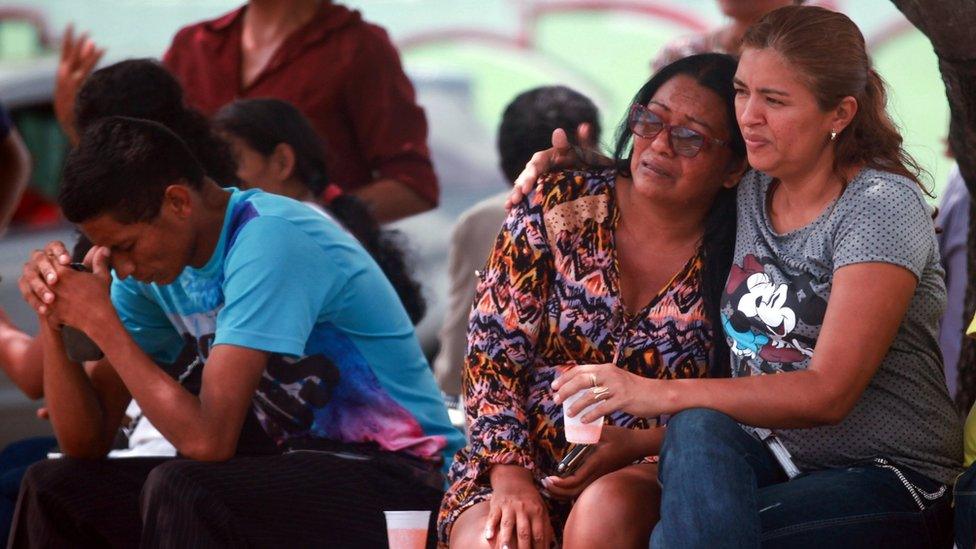
Relatives of inmates gathered in front of the prison's main gate asking for information
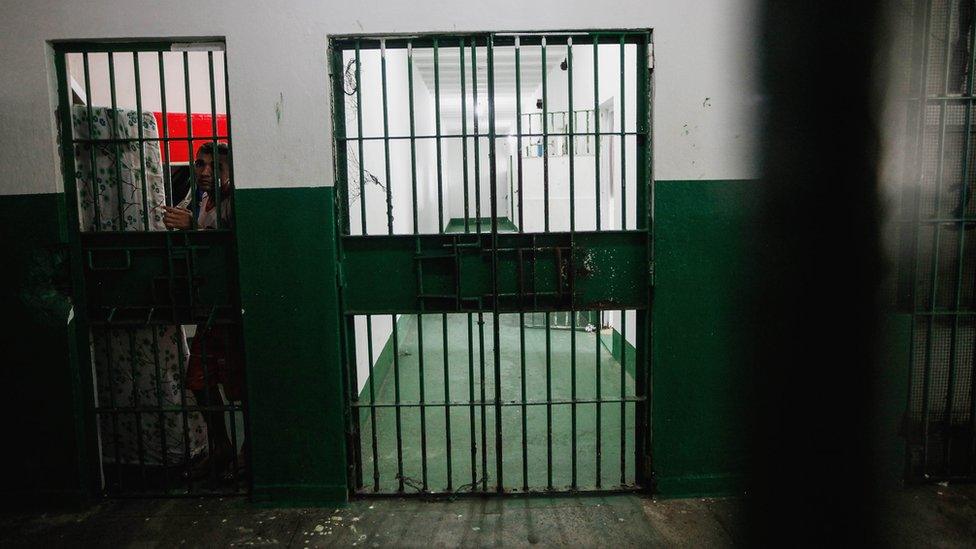
The Anisio Jobim Penitentiary Centre is the biggest in Amazonas state
Prisoners at another unit within the same jail complex also rioted and many escaped, Mr Fontes said. Some 40 inmates had been recaptured, he added. It was unclear how many remained at large.
Later, an escape attempt in another adjoining detention centre was quickly controlled by authorities.
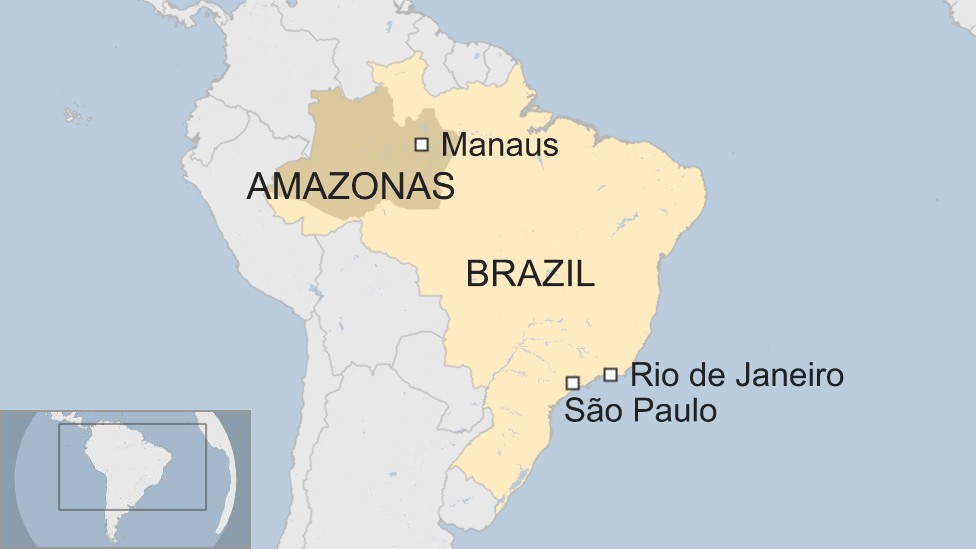
Fights between rival gangs often result in dozens of inmates being killed and sometimes dismembered.
The gang members behind the deadly riots are often from violent inner-city areas of Rio de Janeiro and Sao Paulo who have been transferred to prisons in remote states in order to break up their gangs.
This was the deadliest prison riot in Brazil since 1992, when a rebellion at the Carandiru prison in Sao Paulo saw 111 inmates killed, nearly all of them by police as they retook the jail.
- Published31 October 2016
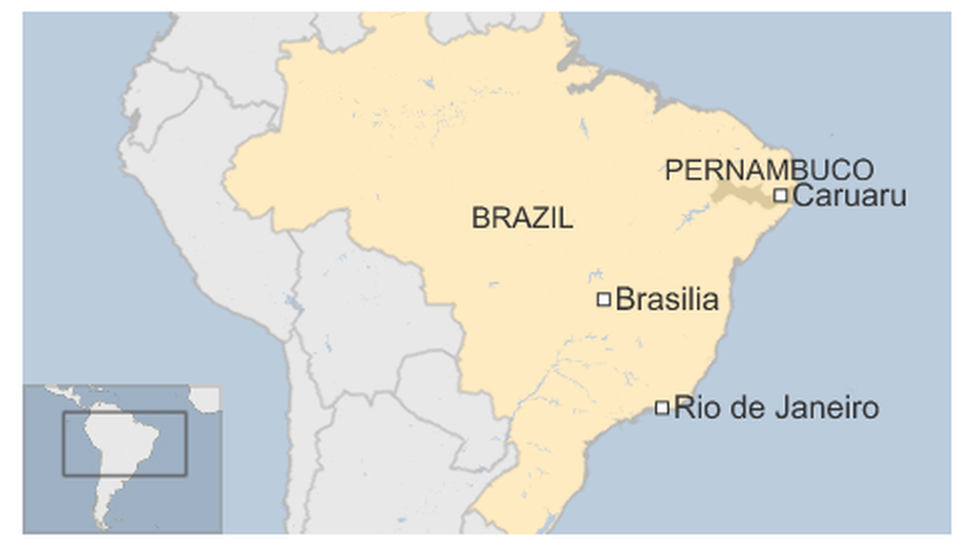
- Published17 October 2016
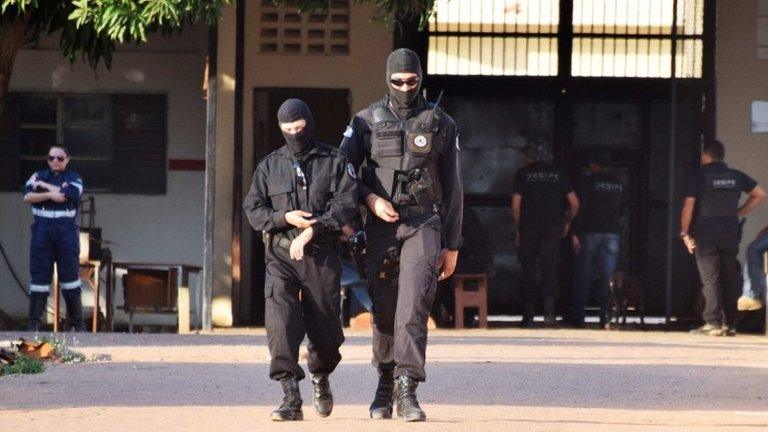
- Published17 October 2016
